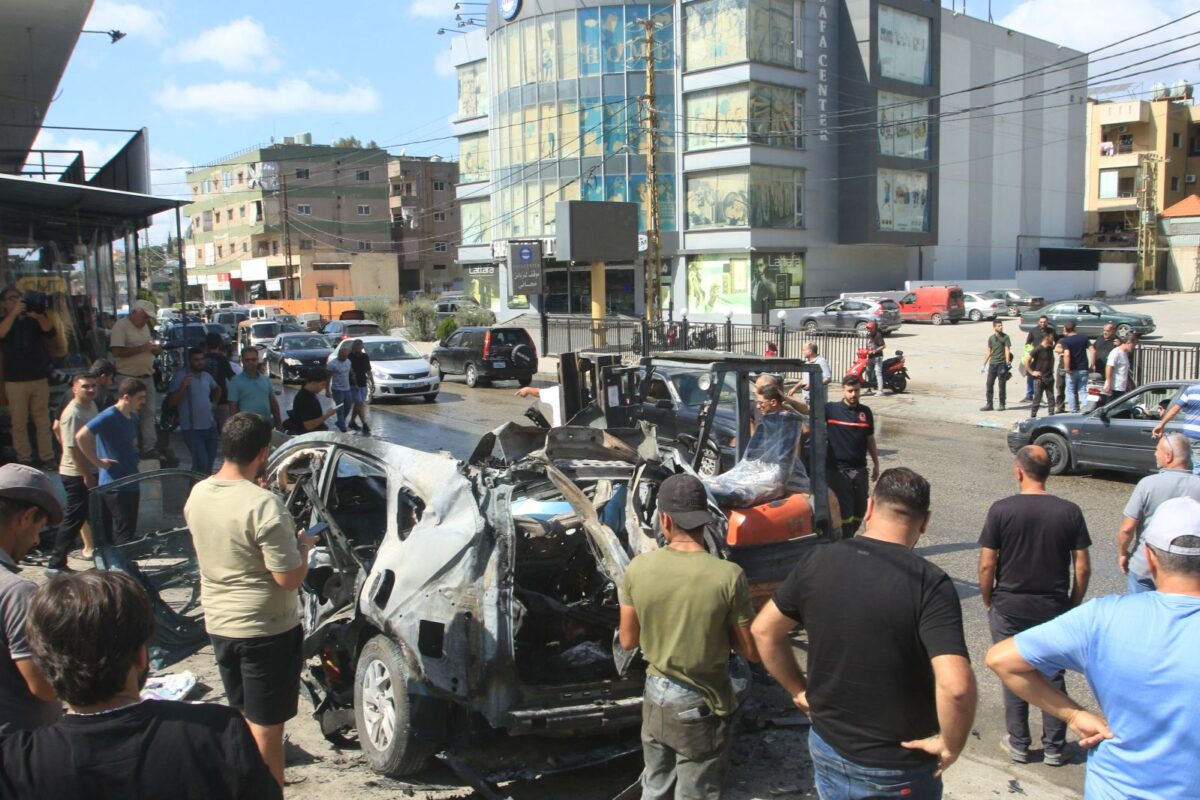
Two years after the 2023–24 war between Israel and Hezbollah, Lebanon is again approaching a dangerous crossroads. That war ended with Hassan Nasrallah’s assassination and the destruction of much of Hezbollah’s infrastructure. What survived is a movement stripped of its aura but still armed, still convinced it represents the last line of “resistance.”
Under Naim Qassem’s leadership, Hezbollah’s voice has grown more defensive than defiant. Its speeches recycle Nasrallah’s vocabulary but lack his authority; its confidence has been replaced by caution. Inside the party’s own circles, the cracks are visible strained finances, fragmented alliances, and an uneasy base that senses its power is shrinking faster than its rhetoric admits. Across every indicator—military, social, and political—Hezbollah stands today at its weakest point ever.
A Region Moving On
While Hezbollah clings to an outdated posture of resistance, the region around it is shifting. Trump’s administration sees the post-Gaza landscape as the final stage in a broader “peace order” that marginalizes Iranian proxies. With Hamas contained and Tehran facing renewed pressure, the unfinished file is Lebanon.
From Washington’s vantage point, Hezbollah’s decline presents opportunity. If the group refuses to disarm voluntarily, a new military confrontation—this time coordinated and decisive—could remove the last obstacle to a U.S.-brokered regional peace. For Israel, which already destroyed much of Hezbollah’s infrastructure in 2024, the logic is equally clear: end the threat once and for all, even if it means another war.
Hezbollah’s Delusion
Yet Hezbollah appears blind to the scale of its vulnerability. Convinced that its remaining rockets and its alignment with Iran still offer bargaining chips, it continues to posture as though time is on its side. Within its leadership, there is a dangerous belief that another round of limited confrontation could restore lost legitimacy or open a new negotiation track.
That miscalculation could prove fatal. The region’s tolerance for Hezbollah’s role has evaporated; its deterrence no longer deters. What once served as Lebanon’s shield has become its liability. A new war may no longer be a question of if but when and this time, it will be framed not as containment but as termination.
The Cost to Lebanon
The tragedy, as always, is that Lebanon will pay the price. The state remains too weak to shape events, its economy too brittle to absorb new shocks. Socially, communities are exhausted; politically, paralysis reigns. Another war would deepen every fracture: sectarian, institutional, and psychological.
And even if it ends Hezbollah’s military power, the victory will likely repeat a familiar Lebanese pattern: the veneer of resolution masking an unresolved core. Reconstruction funds will flow, buildings will rise, and leaders will claim rebirth. Yet the same fractures that allowed Hezbollah’s dominance—fear, inequality, and lack of dialogue—will remain untouched.
A Country That Refuses to Learn
Lebanon has never confronted its own silences. It avoided reckoning after 1990, after 2005, 2006, 2008 and after 2024. Now it faces another moment of reckoning by force, not choice. Hezbollah’s refusal to acknowledge defeat, and the persistence of a delusional belief among its supporters that defiance equals dignity, risk dragging the entire country into another cycle of ruin.
Trump’s Middle East peace gamble may well deliver a headline victory for Washington and Tel Aviv. But for Lebanon, it would mark the collapse of the last illusion that the country could indefinitely postpone choosing between sovereignty and subjugation.
If the next war comes, it will not only end Hezbollah’s era. It will expose how little of Lebanon’s own statehood survived it.
Ramzi Abou Ismail is a Political Psychologist and Senior Research Fellow at the Institute for Social Justice and Conflict Resolution at the Lebanese American University.
The views in this story reflect those of the author alone and do not necessarily reflect the beliefs of NOW








